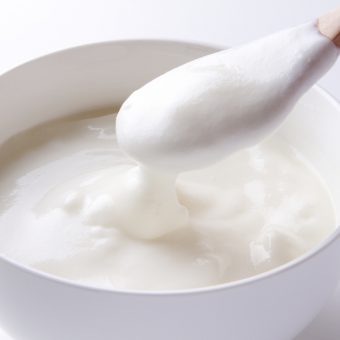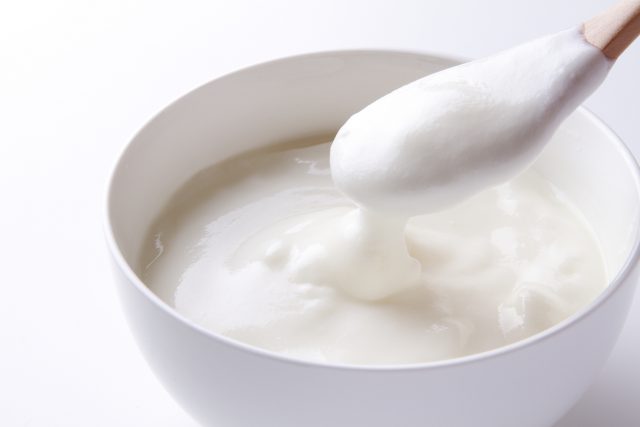
YOGHURT
For people who cannot digest milk
There are many Japanese who cannot drink milk. This is due to lactose intolerance which is when one fails to have or have little of lactase in the intestines. However, lactic acid is used when yoghurt is made from fermenting milk. This lactic acid is strong in lactase activity and breaks down the lactose during that process, which makes yoghurt possible for lactose intolerance people to safely digest and the nutritional value is even increased when compared to just milk.
Effect on health and beauty:
・Constipation/obesity: Regulates intestinal environment to resolve constipation and to prevent obesity.
・Vitamin deficiency: Abundant amount of vitamins A, B1 and B2, pantothenic acid, biotin, choline, necessary for beautiful skin. It’s good to eat 200ml of yoghurt a day.
・Anemia: Folic acid promotes production of blood.
・Pollen allergies: Stronger immune system with increased number of beneficial bacteria due to an improvement in the intestinal environment.
Overview:
・World’s oldest fermented food that humans discovered.
・Milk that would go foul through lactic acid fermentation in a day or two could be kept for 7-10 days.
・Not only can spoilage be avoided, but the taste becomes pleasant as fermentation adds aroma and sourness.
Furthermore, we now know that nutritional value increases. One can say that it’s the “first step” to modern food culture.
Characteristics
・Through the fermentation process, the absorption of high-quality protein of milk becomes very effective.
・Abundant in vitamin B2 and calcium.
・The lactic acid bacteria increase metabolism by keeping the intestines healthy through activation of intestinal bacteria.
Major areas of production:
Central Asia, around the Mediterranean Sea
Nutrients:
Protein, potassium, calcium, vitamin B2 and folic acid

